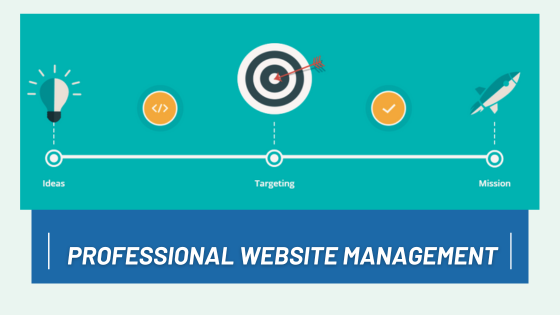
How Professional Website Management Contributes to Business Success
In the modern digital era, having an online presence is crucial for businesses. A professionally managed website not only provides credibility but also ensures that customers have a seamless experience. Let’s explore the importance of professional website management and how it contributes to the success of businesses in today’s competitive market.
What is Professional Website Management?
Professional website management refers to the process of monitoring, maintaining, and updating a website to ensure its optimal performance. This practice involves a variety of tasks that encompass multiple dimensions of a website, such as design, content, security, and functionality.
Key responsibilities of a professional website manager may include:
- Updating Site Content: Keeping website content relevant and up-to-date is essential for attracting customers and providing them with valuable information. A professional website manager ensures that all site content, including news, blog posts, and product pages, remain fresh and engaging.
- Monitoring Site Performance: A well-performing website is crucial for maintaining a positive online presence. This includes monitoring website speed, addressing errors, and ensuring that all components function smoothly.
- Handling Website Security: A secure website helps build customer trust, particularly when it comes to sensitive data like payment information. Professional website management involves regular security checks, updates, and the implementation of necessary measures to protect a website from cyber threats.
- Ensuring Website Accessibility: A professionally managed website should be accessible to all users, including those with disabilities. Managers work to ensure that a website adheres to Web Content Accessibility Guidelines (WCAG) and functions smoothly across different devices and browsers.

Benefits of Professional Website Management
Investing in professional kodulehe haldus comes with a host of benefits:
- Improved User Experience: A well-maintained website offers a seamless experience for visitors, encouraging them to stay longer and explore further. This can ultimately lead to increased customer engagement and higher conversion rates.
- Website Security: Regular security checks and updates minimize the risk of cyber-attacks and help to maintain customer trust. A secure website also helps prevent potential damage to a business’s reputation and loss of revenue resulting from cybersecurity issues.
- Up-to-date Content: Fresh, relevant content not only keeps visitors engaged but also provides a positive impression of the company. Regularly updating website content helps to showcase expertise, support marketing efforts, and drive organic traffic.
- Increased Compliance: Ensuring a website is accessible to all users, including those with disabilities, not only improves the overall user experience but also demonstrates corporate social responsibility. Additionally, it helps businesses comply with accessibility guidelines and avoid potential legal issues.
Conclusion
In the ever-evolving digital landscape, businesses need to prioritize professional website management to stay competitive and effectively reach their target audience. An optimally performing, secure, and accessible website delivers a superior user experience, builds credibility, and drives growth. By investing in professional website management services, businesses can focus on their core competencies while reaping the benefits of a well-managed online presence.





